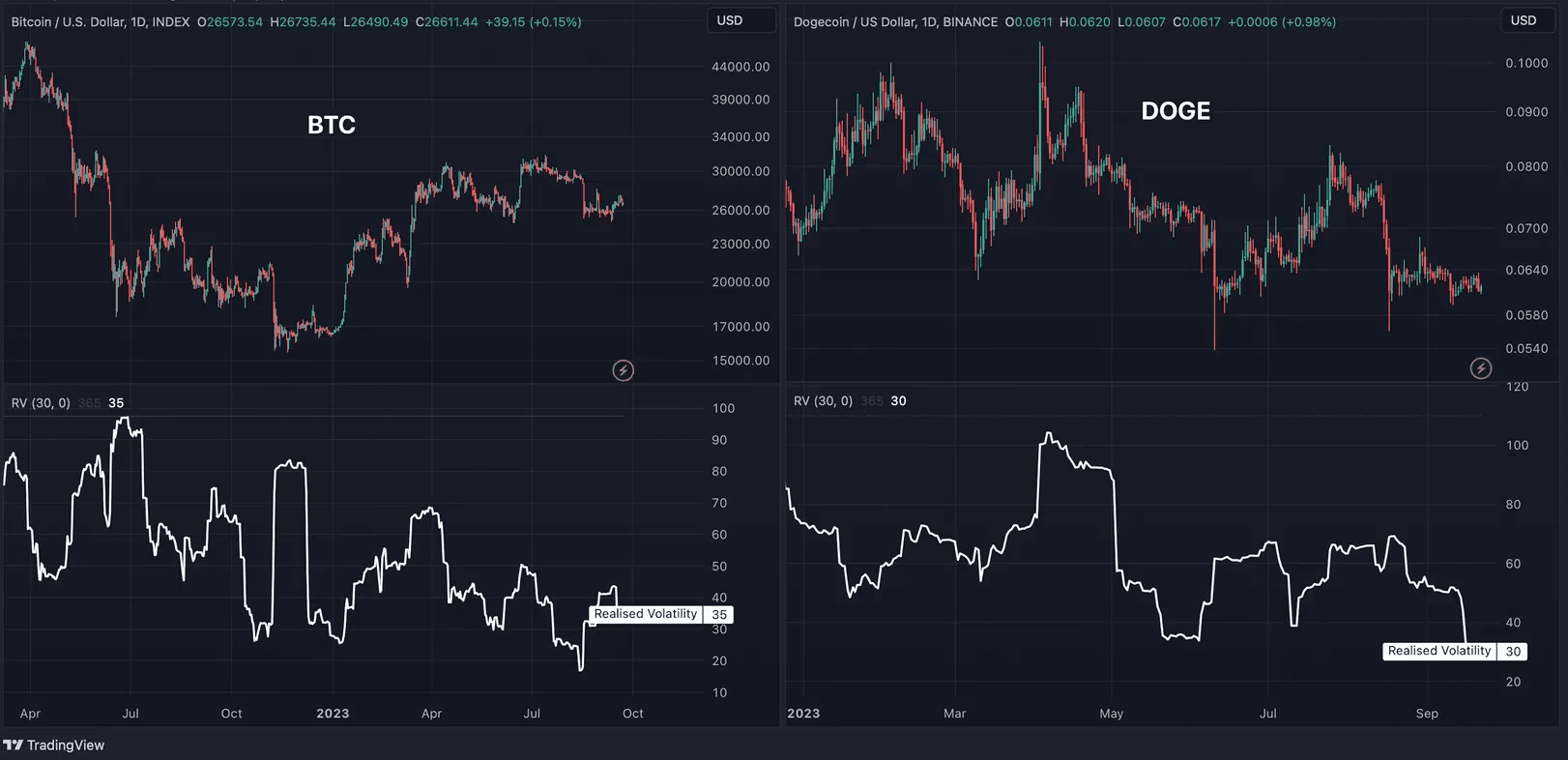#Dogecoin (DOGE), the largest meme cryptocurrency by market value, has seen so much volatility that it now appears more stable than the digital asset sector leader, bitcoin (BTC).
DOGE's annualised 30-day realised, or historical, volatility was 30% at press time, far lower than Bitcoin's 35%. The standard deviation of the daily percentage change in an asset's price over a certain period is used to determine realised volatility.
DOGE has historically been more volatile than bitcoin, which scares risk-averse investors, which is understandable given that BTC has been there since 2009 and has matured as a macro asset with increased institutional engagement over the last three years. Nonetheless, DOGE has been seen as a non-serious crypto project from its debut in 2013.

BTC's 30-day realised volatility has fallen below DOGE's, an uncommon occurrence in the crypto market.
The meme coin's newfound status as a less volatile asset should not be interpreted as market maturity; rather, it is likely due to a lack of investor interest in other cryptocurrencies.
Bitcoin's dominance rate, or proportion of the whole crypto market, has risen to 50% from roughly 40% earlier this year, indicating that money is flowing away from other cryptocurrencies and into bitcoin. While the price of Bitcoin has increased by 60% this year, the price of DOGE has decreased by little more than 12%, according to CoinDesk statistics.
The aggregate 1% market depth, for example, tells the same story. This statistic measures bids and requests for all order books on major cryptocurrency exchanges that are within 1% of the mid-price.

Altcoin market depth is much smaller than that of #BTC and #ETH .
According to statistics compiled by Paris-based Kaiko, the aggregate 1% market depth for the top ten cryptocurrencies was much lower than that of Bitcoin and ether at the end of last month.
Trading volumes in the spot market fell to a four-year low of $475 billion in August, indicating an industry-wide fall in activity.
DOGE and other coins have little liquidity, which is consistent with the hazy regulatory picture for smaller #cryptocurrencies . The Securities and Exchange Commission (SEC) of the United States referred to many cryptocurrencies as securities in its lawsuit against key digital asset exchanges Coinbase and Binance earlier this year. $DOGE and $SHIB were not addressed, but tighter laws for cryptocurrencies may harm meme coins in the future.


